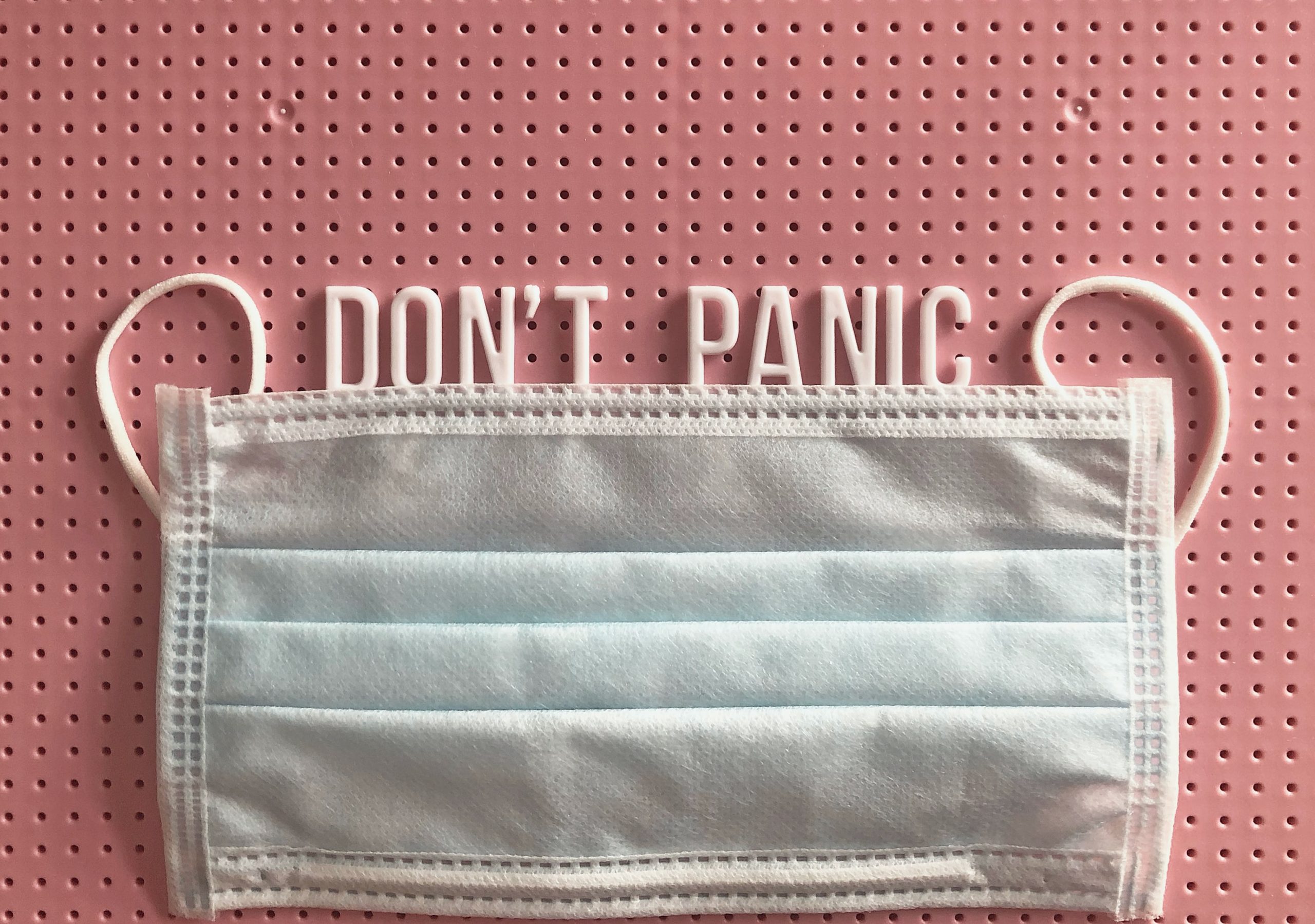Fear is a natural emotion. Some fear is actually very healthy. Our earliest ancestors relied on fear to keep them safe. Though fear is generated in the amygdala- the frontal lobe of the brain, fear can be felt throughout the body. Having a gut feeling or intuition that something isn’t safe is an indication of fear. Feeling the hairs on your neck or arms stand on end can also be an indication of fear. This is a managing fear – part 1.
FEAR – THE THIEF THAT STEALS YOUR FUTURE
Fear is a natural emotion. Some fear is actually very healthy. Our earliest ancestors relied on fear to keep them safe. Though fear is generated in the amygdala- the frontal lobe of the brain, fear can be felt throughout the body. Having a gut feeling or intuition that something isn’t safe is an indication of fear. Feeling the hairs on your neck or arms stand on end can also be an indication of fear.
Some people are more afraid than others. There are a lot of factors that go into what makes someone fearful. Factors like-
- Past trauma
- Socioeconomics
- Mental health conditions
- Confidence
- And much more
Some fear is normal. Being in an intense situation or going through an emotionally difficult time makes fear an expected part of the experience. In these cases, fear generally dissipates when the situation improves. Normal doses of fear don’t do harm to the body or cause long-term emotional issues. Our bodies are designed to manage and withstand fear.
People who live in a constant state of fear are a different story. Living with fear- real or imagined- can cause a host of problems including health, psychological, and social issues. Most of all, chronic fear is a thief that steals the future. Living in fear and failing to resolve it makes it really hard to enjoy life in the moment and drives people to predict a fearful future.

Fear that’s warranted due to an intense situation makes sense. Addressing the fear, taking action, and moving through the situation will help lessen the fear and get you back on track. The biggest issue to avoid is internalizing fear. When fear sticks in your mind it can cause worry or stress long after the incident is over. Failing to remedy the fear can lead to anxieties and worries that start to steal the future. Instead of facing fear head-on in the moment, the fear that something else is on the horizon can begin to boggle the mind on a regular basis. This constant state of worry and fear can affect the mind, body, and spirit.
Chronic fear that has no clear-cut basis can steal the future with worry and anxiety. Getting fear under control, remedying issues that need to be fixed, and finding inner strength can help. Take hold of your fears and get to the root of them. Breaking down the fear and tackling the different components can make all the difference. Before long you will be looking forward to the future rather than fearing it.

FRIEND OR FOE? SOME FEAR IS HEALTHY
If you asked most people, they would agree fear is something they’d like to avoid. Although there are those people who thrive on scary movies, haunted houses, and more. However, being truly scared, feeling fear and worrying tend to be things most people don’t enjoy. But fear can be healthy- it doesn’t always mean bad things are on the horizon. There are times when people embrace fear and use it to their advantage. Believe it or not fear can be harnessed and used for good.
Fear is nature’s way of protecting the mind and the body. Generally, people use their thinking and their emotions to come to conclusions about experiences. An activity, thought, or experience is filtered through the mind and an emotion is attached to it. When thinking and emotion are in agreement about fear, fear becomes the response. A fear response isn’t a given in all challenging situations. One person may be very fearful of encountering a snake, while another might be exhilarated. The meer image of a snake gives my husband, Scott, the heebie jeebies. One person might avoid speaking in public while another might jump at the chance.
Fear can be a positive thing. Some fear is anxiety-based, and some is rightfully…well, fearful- for very good reason. Let’s take a look at how fear can be used in healthy ways.
Fear can protect you from danger – Fear is nature’s way of protecting us from harm. When fear is triggered it alerts us to pay close attention to what’s going on. From noticing the environment and watching out for danger, the fear response can prevent bad things from happening.
Fear can exhilarate you – Fear is a natural response to a new and intimidating experience. Physically, we may fear an experience like skydiving, but it can be exhilarating too. Our first response might be heck no but, in the end, we are thrilled from having jumped.
Our ego protects us from emotional harm – That means an emotion of fear might be triggered when you decide to step out into new and bigger territory. This type of fear isn’t always about personal safety, it includes emotional safety and not embarrassing ourselves. Doing something in public might feel intimidating and scary, but it can result in exhilaration.
Fear can mature you – Fear ends in resistance. Fear tries to stop forward progress for a variety of reasons. From the unknown, to fear of failure…again, to fear of loss, embarrassment, or harm. Facing fears or doing things while afraid can help your maturity. Some fears are simply paper tigers which can easily be conquered by moving through them. Once you’ve faced your fears, they help you grow and mature into someone who can handle more than before facing the fear.
Fear can teach you- Fear can be an excellent teacher. From regretting a mistake to experiencing the thrill of pushing through your limits, fear can lead you into new territory. You can learn from your mistakes which is just as healthy as making good choices sometimes. Facing fear can teach skill sets you need to be more mature, push past your limits and grow.
Fear is a friend and a foe. Some fear is healthy and shouldn’t be ignored. It’s ok to be afraid and step out into the fear and see what happens. Take risks and face fears and let them help shape you into a more mature and less fearful person.

KEEP FEAR FROM MAKING YOU SICK
Fear is an intense emotion. It can send a surge of white-hot energy throughout your body as adrenaline flushes your system and makes you keenly aware things aren’t right. It can also simmer in your body with a constant reminder that something might go wrong at any moment and danger lurks behind every corner.
Short term fear might result in a heightened sense of anxiety, the feeling of butterflies in your belly, sweating and flushing, or shortness of breath. The symptoms generally subside as the threat or worry calms down. There might even be an emotional hangover after the intense moments which might require isolation and a good nap.
Chronic fear can wreak havoc on your body. From physical to emotional symptoms, fear can manifest as an illness or injury. People who live in a prolonged state of fear increase the chances that they will become sick. It’s important to manage fear before it can morph into something worse.
TAKE STEPS TO KEEP FEAR FROM MAKING YOU SICK
Step #1. Be honest about your fear- Not everyone who feels fear shows it. Some fear may even be subconscious. Be willing to admit and be honest about the fears in your life before they mask themselves as illnesses or injuries. If you suffer from chronic issues like insomnia, digestive issues, headaches, anxiety, and other health issues, ask yourself if you are living with fear.
Step #2. Get comfy talking about tough things- Many people hide their fears because they are uncomfortable talking about them. They may not have the words to adequately express how they feel. Sometimes they might feel the situation is hopeless, or they may want to avoid uncomfortable confrontations with difficult people. Being uncomfortable talking about external things can lead to internal issues. Learning to normalize difficult conversations can help alleviate physical and emotional illnesses and injuries.
Step #3. Set healthy boundaries- There’s a time and a place to be afraid. When a situation comes up that causes fear it might be for very good reason. A health scare, an uncertain future, a crisis, or unexpected setback are natural reasons to be fearful. Even so, setting healthy boundaries can put limits on how much of an impact fear has. Even the most stressful and fearful situations offer choices or opportunities to reduce the fear and keep yourself safe.
While fear is normal, and the associated feelings can cause short term discomfort, illness and injury are possible if you don’t take precautions. Be sure to set limits and do what you can to keep fear from morphing into an unfortunate illness or injury.

PREPARE FOR BATTLE
Fear is an intense emotion with an intense response. It comes with some high stakes fall out if you aren’t careful. Facing fear is a lot like going into battle. It might take a wide range of weaponry to overcome fear in a fight. What works to stop some fears may not work in combat against other fears. Having the right weapon for the fight will make a big difference.
Making the decision to go after your fears is brave in and of itself. It takes courage to face fears head-on and stare them down. Here are some top tips to prepare for battle and face your fears!
Top Tip: Avoid the battle if you can- Some fear isn’t worth a battle. Just because you’re afraid doesn’t mean you have to fear. Some fear is false. A great acronym for fear is False Evidence Appearing Real. That means sometimes we are tricked into fearing things that aren’t really true. Before you waste your time wrestling with a fear make sure it’s a worthy foe. You can avoid battles by simply refusing to fear things that aren’t worth the worry. I have a friend who reminds me of this acronym time and time again, because yes, even I fall victim to fear.
Top Tip: Control the environment when possible- A lot of fear comes from the unknown. Being unable to see down a dark alley can make it frightening to enter. Reading doom-and-gloom headlines on social media and in the papers can create panic. Covid-19 has a lot of people in a panic. Take precautions, yes. Panic, no. Whenever possible, control the environment and you’ll be better able to face your fears. What you watch, who you speak with, and where you place your attention will greatly impact your ability to face your fears. Seek out healthy information that is uplifting, informative, and truth-based so you are not overcome with sensationalism or fear mongering.
Top Tip: Arm yourself with the right information- Sometimes the battle is up close and personal. That’s when you need weapons for hand-to-hand combat. Being armed with facts rather than emotions can help. Face your fears when they are in your face by holding a dagger made of truth about your situation. Protect yourself with a shield made from facts that support your victory. Use your time wisely and seek out information that will help you face your fears and conquer your worrisome mind.
Managing fear is a lot like going into battle. You’ve got to be armed with the right weapon for the situation. It’s important to set yourself up for success in your fight against fear. Not every fight has to be fought, but when it does, do your level best to control the environment and arm yourself with the right weapon for the fight.

THE POWER OF WORST-CASE SCENARIO
Fear starts a domino effect. The worry that comes from fear can run as rampant as your imagination allows. Fear conjures images and scenarios in our minds that are generally worst case. In most instances, these worst-case scenarios will never happen, but the fear that they will can be overwhelming. The best way to defeat these worst-case scenarios is to embrace them and take them on.
We gain power from tackling a worst-case scenario. Most of them are products of our imagination and are far worse than what might actually happen. Forcing yourself to stop fretting about the worst situation is pretty simple. Just as yourself- “what if?”
FEAR IS BASED ON UNSOLVED PROBLEMS
Fear is generated by the thought of a problem. If a problem has an automatic solution, it isn’t that scary. If your toilet begins to overflow and you know to turn off the main valve, you aren’t overly fearful that you’ll have water damage; however, not knowing what to do can cause stress and anxiety as you watch water…and more…cascade across your flooring.
When the problems caused by fear are addressed, solutions tend to follow. Asking yourself, “what if?” can help create solutions to the myriad of problems your fears are causing.

WORK BACKWARDS FROM THE WORST-CASE SCENARIO
It helps to jump to the end of the line with your fear. Generally, your worst case is so far-fetched that it will seem ridiculous under scrutiny. What if your worst-case scenario really did happen? Though it might be tough, force yourself to face that thought and ask yourself what you would do if the worst happened. From there, ask yourself what you would do over and over again as you work through the scenario. An example might be-
Worst-case scenario: Job Loss
What if I lost my job?
I’d file for unemployment.
What would I do next?
I’d cut back on expenses.
What would I do next?
I’d network for new opportunities.
What would I do next?
I’d take the time to update my skills.
What would I do next?
I’d find new ways to make money.
See how breaking your worst-case scenario down actually helps solve problems before they even happen? The awareness that there are steps you can take, even in the worst of cases, can help reduce fear and make it easier to face uncertainty and difficult situations. Solving problems before they happen can help you feel in control and better able to face things.
Use the worst-case scenario tool to help overcome your fears and prepare for anything that your fear and imagination can create.
Try these worst-case scenarios:
Worst-case scenario: I can’t pay my rent/mortgage
Worst-case scenario: My car was repossessed
Worst-case scenario: My refrigerator is broken
Worst-case scenario: My pet is sick
Worst-case scenario: My child is sick
Worst-case scenario: I am a trauma survivor
These are tough cases and they may be very difficult to work through so don’t beat up on yourself if you can’t get through them, but working through them might give you some ideas. For example, you might decide that you need more/better insurance for your pet or your family. Or, if you were considering a pet, you might decide it’s not time for one.
Make sure to subscribe below so you don’t miss part 2 of managing fear next week!

Very helpful We ALL deal with fear, and dealing with it in an emotionally healthy way that ends up being positive for us is key. I think 2020 has given us all a reason to fear in one way or another.
I am not one who has a lot of fear. And I have a difficult time empathizing with those who do unless it is realistic like past trauma. But when it came to just general life stuff my number one question is what is the worst that can happen?The reality of this is that I am not really realistic about thew worst that can happen. I see the positive outcome much more than any negatives.
This is something I am struggling with. Thank you for the tips!
Fear is such a hard thing to get over! You have some great tips and advice that will be so helpful! I know one time I was so afraid, I broke down and than I did it afraid.. I was in a near miss in an airplane collision and I had to get back on.. it took a long time…
This is such a timely post given the unsettled nature of this fearsome year. Thank you for sharing your insights. <3
Thank you for these tips that will be helpful with helping my girls manage their fears.
Great tips for dealing with fear. I really like the one about worst case scenario.
Good info and good tips!
It saddens me that people live in constant fear. These are good pointers, I’m sure they will help many people.
Good read! All our emotions are natural and normal until they take over our lives
This is an incredible post! We all have fear and need to know how to handle it!
Your title says it all. Fear can cripple you at times but I love the suggestion of working it out backwards. It’s great advice and will often sound crazy once you realize how ridiculous they may sound when you start to work through the scenarios.
I agree with Tricia! Roll with life and see what happens. Turn that fear into positive results!
Wow. I can totally relate to this right now. Fear has made me sick recently. Fear leads to anxiety and also makes it hard to breathe. Self-care is so necessary in order to help me overcome and cope with my fears. Thanks for sharing and I love the look of your site.
I play worst case scenario and devil’s advocate a lot to help myself calm down.
Great points in regard to fear we all experience at some point. With present circumstances, fear is at an all time high. I keep reminding myself to not worry about what I cannot change.
Thinking about the worst case scenario has helped me a lot, and I’ve been able to calm down. 2020 has been full of fear and unknowns.
I like the discussion about how fear can be healthy (at times).
I used to love flying and would even book flights with layovers to places I’ve never been just to say I’ve been to more places and for some reason in the past couple years I have developed a HUGE fear of flying. It has only been since I’ve been married and flown with my husband. There are just so many freak accident scenarios that run through my mind. I really need to get over the fear though to be able to travel long distances again.
Last week my girlfriend and I encountered a black bear on our morning run. I felt paralyzed with fear but she helped me through it by talking about what actions we needed to take to get through it. I was terrified but having solutions to the problem put the fear aside for a few minutes.
I’ve lived with unhealthy fear for most of my life. It was only after my cancer diagnosis that I realized it and am learning to act from compassion and love instead of fear. You have written so many good things about fear in this post. With most people, it’s getting the self to acknowledge and identify it before transforming it.
This is such a helpful article! I love how you illustrate how to work backwards through fear statements. Thank you.
I am glad you noted that fear is also good. It is our most basic survival skill. It’s the balance of healthy fear and unhealthy fear that is harder to achieve.
Great post!! I will keep these thoughts in mind as I head back into the classroom in 3 weeks. UGH!
I lived in fear for most of my life. It can be paralyzing. Your tips are spot on. For me it took facing my fear and naming them and then not backing down. I am free from the fear that plagued me from my childhood and that freedom is sweet indeed.